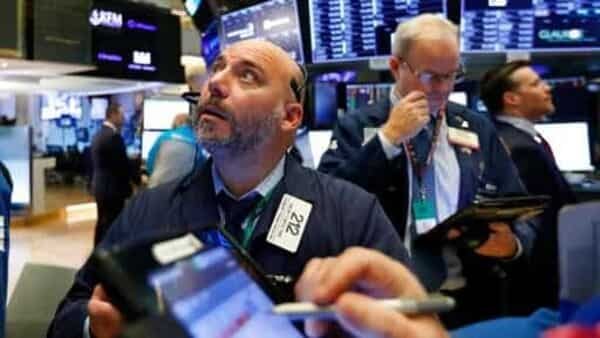S&P 500 turns in worst week so far this year

The S&P 500 fell in early trading, then inched up before moving in a tight range for the rest of the day. It rose 8.96 points, or 0.2%, to 4090.46. But the index still turned in a 1.1% weekly decline, its worst weekly performance so far in 2023.
Markets seemed to be digesting the previous week’s news, which included the Federal Reserve’s 0.25-point increase and a surprisingly strong jobs report. With the fourth-quarter earnings season more than halfway through, fewer companies are topping Wall Street profit expectations than normal. Shares of ride-hailing company Lyft Inc. fell $5.91, or 36%, to $10.31 on Friday after it reported results.
“The market had come close to pricing in a flawless landing,” where inflation recedes and the economy still grows, said Bill Merz, head of capital markets research at U.S. Bank Wealth Management. “We see reason for some degree of caution.”
Some investors said this week that the Feb. 3 jobs report raised the possibility that tightening could last longer than they had hoped. The U.S. added 517,000 jobs last month, far more than analysts were expecting, and the unemployment rate of 3.4% was the lowest since 1969.
A strong jobs report is usually good news, but in the topsy-turvy world of Wall Street, it can be bad news for stocks. A robust labor market could encourage the Fed to keep rates higher for longer to curb the economy.
Fed Chair Jerome Powell said Tuesday that the process of lowering inflation to the central bank’s goal of 2% “is likely to take quite a bit of time.” Markets rallied on Tuesday after his speech but have since declined.
The Dow Jones Industrial Average rose 169.39 points, or 0.5%, to 33869.27. The Nasdaq Composite fell 71.46 points, or 0.6%, to 11718.12. All three indexes finished the week lower, the first time that has happened since December. The Nasdaq snapped a five-week winning streak with its 2.4% weekly decline.
Stocks had enjoyed a strong start to the year. All three indexes finished January higher, including an 11% rise in the Nasdaq, in large part because investors had expected the Fed to end its campaign to raise interest rates and, eventually, lower them. This week’s moves signal investor doubts that the Fed can reduce inflation without slowing down the economy.
Derivatives markets reflected a shift in expectations. Investors who had wagered on the Fed cutting rates this year scaled back those bets.
“Sentiment has soured a bit,” said Sebastian Mackay, a multiasset fund manager at Invesco. “The market was confident that we would be looking at interest-rate cuts later this year, but the strong jobs data has thrown a spanner in the works.”
Investors will soon receive more information about the health of the consumer and the direction of interest rates. Consumer-price data for January is expected next week, while Coca-Cola Co., Marriott International and Kraft Heinz are among the companies scheduled to report quarterly results.
“The market is nervous about confirmation from the CPI report that more work needs to be done before the Fed can ease off the gas pedal,” said Keith Buchanan, portfolio manager at Globalt Investments.
So far this earnings season, 58 companies have issued a negative profit outlook for the first quarter, according to FactSet. Just 13 have issued a forecast that topped analyst expectations. About 70% of S&P 500 companies have reported results.
The yield on the benchmark 10-year Treasury note rose to 3.743% from 3.682% the previous day.
Oil prices rose after Russia said it plans to cut output by 500,000 barrels a day, starting in March. Global crude benchmark Brent climbed 2.2% to trade at $86.39 a barrel.
“Lower Russian production together with China’s reopening should tighten the oil market further over the coming quarters,” said Giovanni Staunovo, a commodity analyst at UBS.
Overseas, the pan-continental Stoxx Europe 600 slid 1%. London-based bank Standard Chartered declined 5% after First Abu Dhabi Bank denied a report that it was still considering a takeover. German sportswear company Adidas fell 11% after it warned it could swing to a loss this year due to the termination of its partnership with rapper Kanye West.
In Asia, major benchmarks were mixed. The Shanghai Composite Index retreated 0.3%, and Hong Kong’s Hang Seng Index dropped 2%. Japan’s Nikkei 225 added 0.3%.
